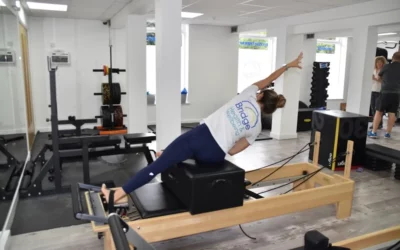Headaches. Mysterious. Sometimes debilitating. They can cost millions in lost time and productivity. And finding out more about them can be a headache in itself.
Did you know there are over 150 different types of headaches?
Tension headaches are some of the most common. Other well-known types include migraines and cluster headaches. Lesser-known types include sinus, neuralgia and cervicogenic. With so many types, finding out the best treatment options and more information about them can be difficult. Especially if you are unsure if you are experiencing a migraine or a headache.
How can you tell the difference?
Differentiating your symptoms is mainly focused on the frequency, severity and duration of your pain. Speak to your GP if you are experiencing any of the below symptoms**.
Migraine
This type is recognised by severe throbbing pain, often on one side of the head with associated nausea, vomiting and/or light sensitivity. Some individuals will get a warning sign, called an aura, that happens just before or during a migraine episode. Auras include bright spots, flashes of light, tingling or numbness in the body. Migraines often last a few hours or days.
Cluster
The defining features of these headaches are cycles of painful headache attacks followed by periods of no headaches at all. They can be described as piercing or burning. The attacks can last for minutes or hours and often end suddenly.
Tension
Felt as a dull, aching sensation in the head. Tightness or pressure across the forehead or on the back of the head could also be felt. These symptoms are often accompanied by tension or tenderness in the scalp, neck and shoulders. Factors that influence tension headaches are spasm, pain or contraction of the muscles of the neck and head.
How can you treat them?
- Massage Therapy – Soft tissue treatments can be very beneficial for relieving tension in the head, neck, back and jaw that contribute to the development and severity of headaches. Regular treatments can help you reduce stress, recover quicker and prevent the onset of tension headaches.
- Physiotherapy – A physio will be able to determine if your neck is causing or contributing to your pain. They will prescribe strength and mobility exercises for your neck to help reduce the frequency and severity of your headaches. They may also look at your posture and ergonomics to reduce everyday strain on your neck.
- Stress Management – Headaches are more likely to occur when you are stressed. The heightened state of arousal during the stress response can be a trigger for migraines or tension headaches. Stress management options include meditation, yoga, breathing techniques, Qi Gong- just to name a few.
- Over the counter medication – These have been shown to be effective for temporary relief of the pain and symptoms. They are generally used to treat symptoms rather than prevent headache attacks.”
If you suffer from headaches, here at Bridge Health & Wellbeing in Christchurch, Dorset, we offer Physiotherapy and Massage Therapy, as well as Pilates, Yoga and other wellbeing classes. These can all help you manage chronic headaches and relieve tension headaches. Book your class today or call our team of friendly wellbeing experts on 01202 473800.
**Seek Emergency Care if your headache is sudden and severe; follows a head injury; gets worse even with rest or accompanies a fever/rash/stiff neck/weakness/seizure.**



